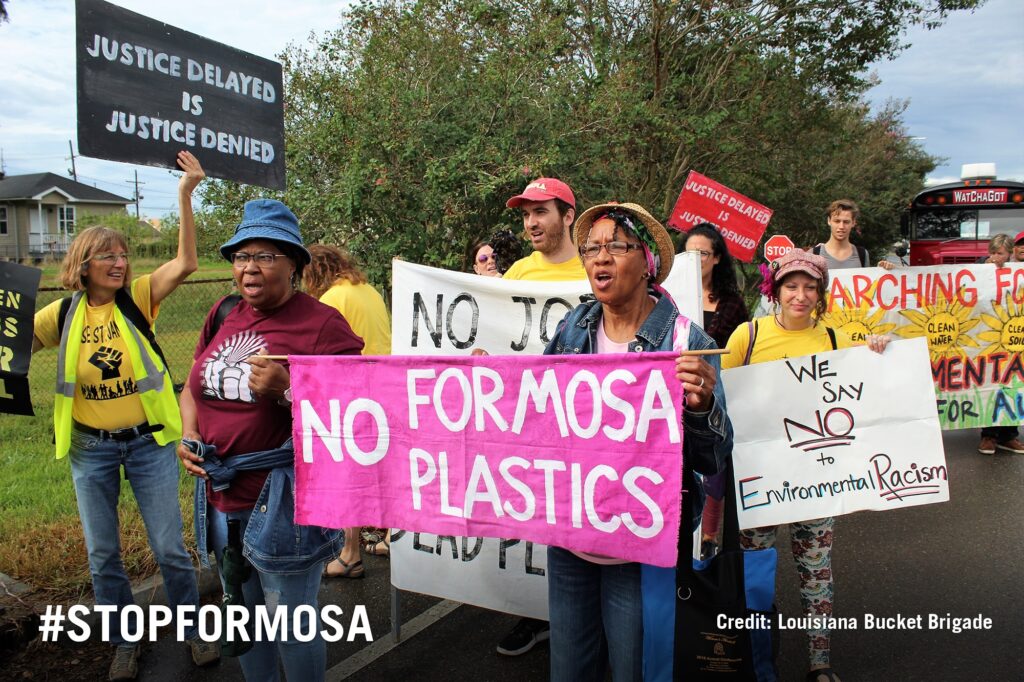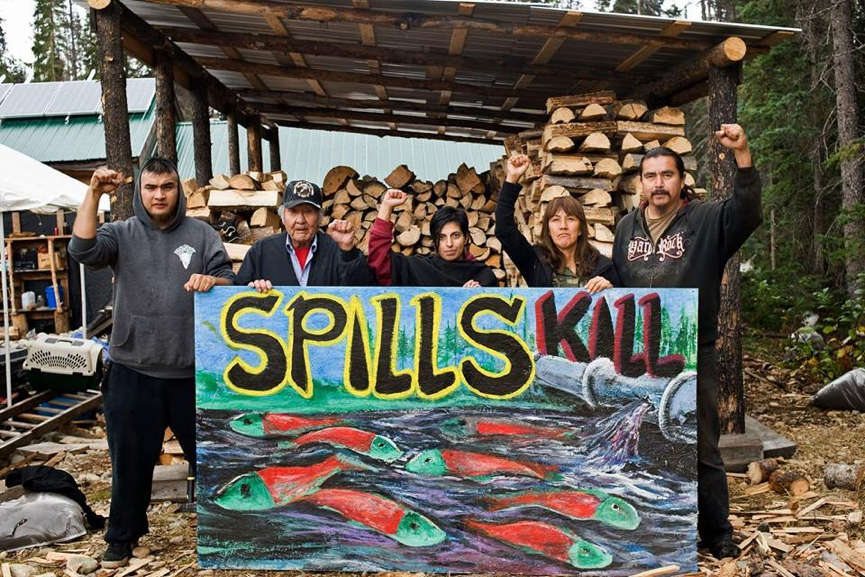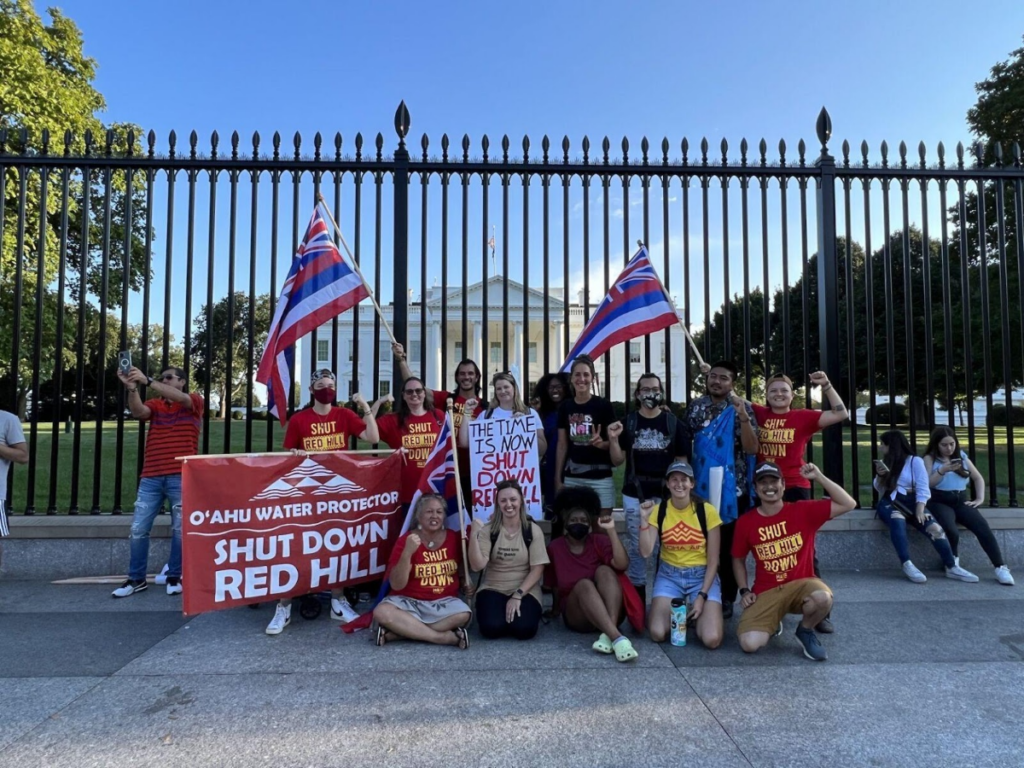Our food system emits 30-50% of global greenhouse gas emissions. Addressing agricultural emissions by shifting our food system towards a regenerative model is key to addressing the climate crisis.
In 2007, more than 500 fisherfolk, Indigenous Peoples, landless peoples, rural workers, urban movements, migrants, pastoralists, and forest communities from 80 countries convened in Mali at the Forum for Food Sovereignty. The Forum was convened to develop a shared understanding of agroecology as a critical element of food sovereignty. The Forum sought to broaden the food sovereignty movement’s capacity for common action and solidarity. The attendees issued the Nyéléni Declaration on Food Sovereignty, which defines the concept of food sovereignty and grounds it in the diversity of peoples, cultures, and struggles they represent.
The seeds of the concept of food sovereignty were planted by La Vía Campesina during the 1996 World Food Summit to move the conversation beyond ‘food security’. While the latter focuses on guaranteeing sufficient food to all (through trade and market mechanisms), food sovereignty recognizes “food as a fundamental right of all peoples” and identifies it as a guide for achieving economic, social, and political justice. In doing so, it places the producers and consumers of food at the center of the food system, instead of exploitative multinational agriculture companies that are not accountable to local communities.
The declaration defines food sovereignty as the right of peoples to healthy and culturally appropriate food produced through ecologically sustainable methods. It also includes their right to define their own food and agriculture systems.
Food sovereignty supports the resistance and dismantling of the status quo – the dominant, corporate-controlled food sector – and shifts power to farming, pastoral, and fishing systems governed by local producers. In doing so, food sovereignty prioritizes local markets and economies and uplifts economic justice at the local level.
The four CLIMA Fund members support grassroots movements lifting up food sovereignty around the world. Our partners employ agricultural practices rooted in traditional knowledge and agroecology. They also promote food governance and policies that re-enfranchise food producers. Here are some examples of how our grassroots partners are advancing food sovereignty and employing practices rooted in traditional knowledge and agroecology:
Community-based food governance in Nepal: ForestAction
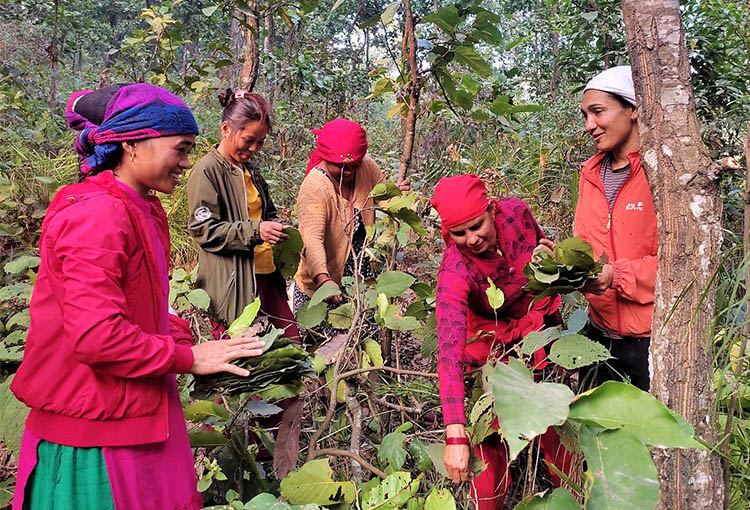
ForestAction uses a community-driven approach to policy research and advocacy that balances economic productivity, environmental sustainability, and social equity. CLIMA partners like ForestAction are shifting what was once a traditional, top-down, state-centric process towards a community-based governance system supported by evidence-based policymaking.
Strengthening food sovereignty in Brazil: Movimento Camponês Popular (MCP) / Popular Peasant Movement, Brazil
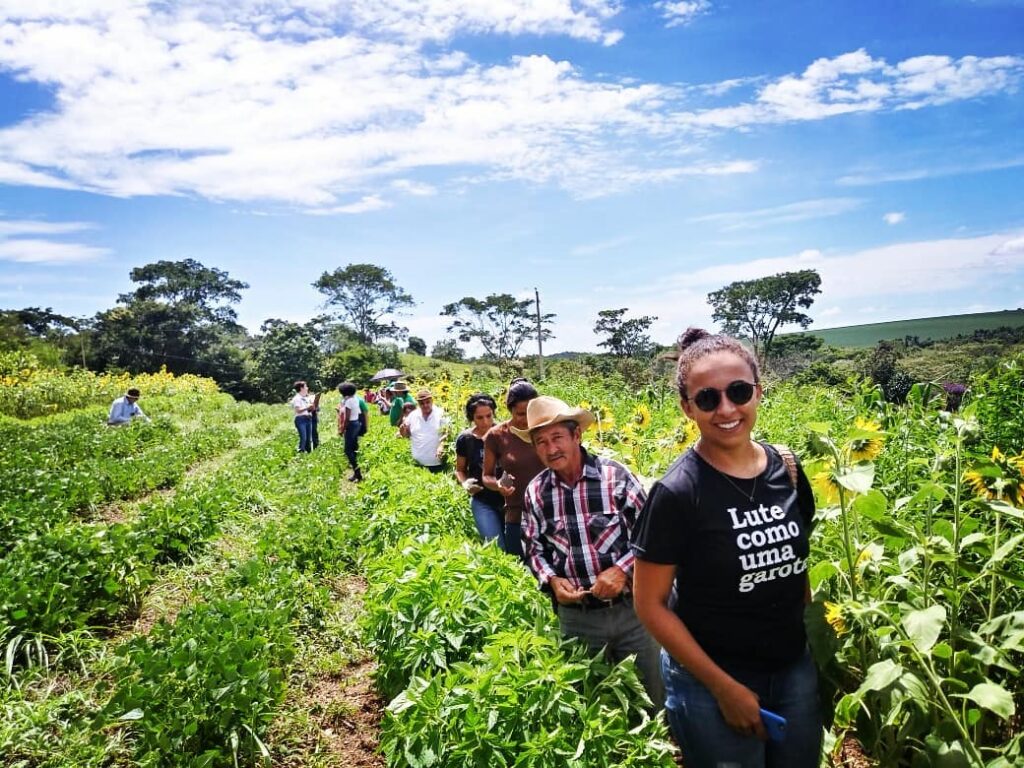
MCP is resisting by strengthening agroecological seed production and distribution and implementing agroecological practices to create the foundation for food sovereignty in Brazil.
Peasant production of seeds is fundamental to a healthy and diversified food system, including seeds resistant to climate change. MCP’s strategy of involving more peasants, especially women, in seed rescue, multiplication, and breeding is key to preserving biodiversity and ensuring access to diverse and nutritious food.
Learn more in our previous newsletter featuring MCP.
Women-led agroecological interventions in the Democratic Republic of Congo and Uganda: Synergie des Femmes Solidaires pour le Changement dans la Justice (Synergie Femmes Solidaires) and Youth Plus Policy Network Uganda
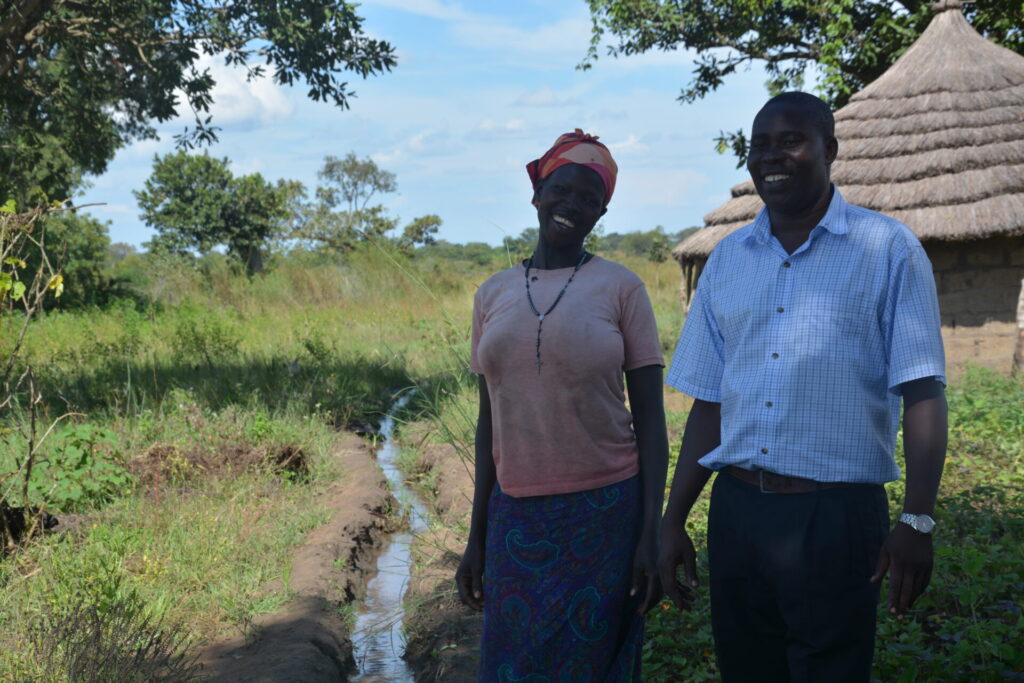
Synergie Femmes Solidaires is tackling food insecurity at its root by educating local women, youth, and religious groups about their right to a clean and healthy environment. Synergie Femmes Solidaires is also promoting the protection of freshwater in the Congo Basin and educating Indigenous women on sustainable agriculture and biodiversity protection.
Synergie Femmes Solidaires is tackling food insecurity at its root by educating local women, youth, and religious groups about their right to a clean and healthy environment. Synergie Femmes Solidaires is also promoting the protection of freshwater in the Congo Basin and educating Indigenous women on sustainable agriculture and biodiversity protection.
Learn more in our previous newsletters featuring Synergie Femmes Solidaires and Youth Plus.
Adapting to the climate crisis: Sahyog Sansthan
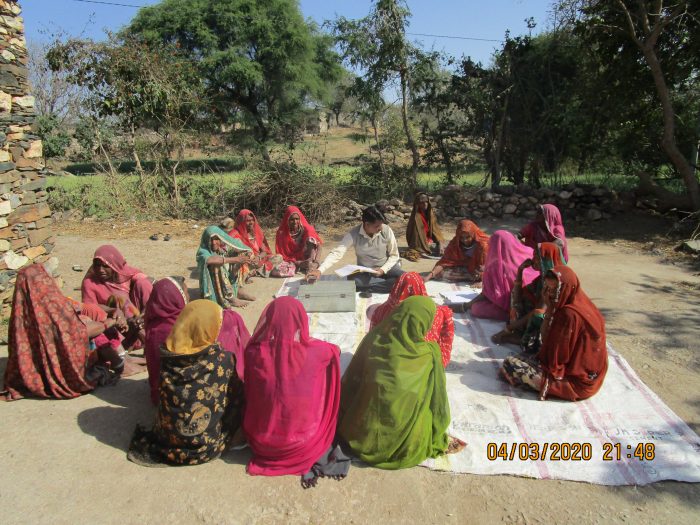
Guided by the philosophy of self-governance, Sahyog Sansthan organizes and educates farmers in sustainable farming practices and watershed management in one of the driest areas in Rajasthan, India. Their long-term monitoring, management, and accountability project revived a common pastureland in the region from drought conditions, which was then replicated in several other villages.
Sahyog Sansthan’s work has taken the guesswork out of agrarian planning, allowing local communities to farm and rear livestock throughout the year. This ensures access to sustainable livelihoods, income, and basic necessities for local families.
Updates from the CLIMA Network:

Palestinian social movements and grassroots organizations know that cycles of violence will not end without resolving the root causes: settler colonialism and ethnic cleansing, apartheid, and the siege on Gaza. GRI and UAF join their partners in amplifying the call for justice for the people of Palestine every day until all are free.
Read Grassroots International’s and Urgent Action Fund’s statements and learn how grassroots groups are responding to the unfolding violence in the region.
The CLIMA Fund is proud to be among the hundreds of funders who signed the Philanthropy Open Letter for Humanity and Justice in Palestine and Israel demanding an immediate ceasefire. Read the full letter: funders4ceasefire.org
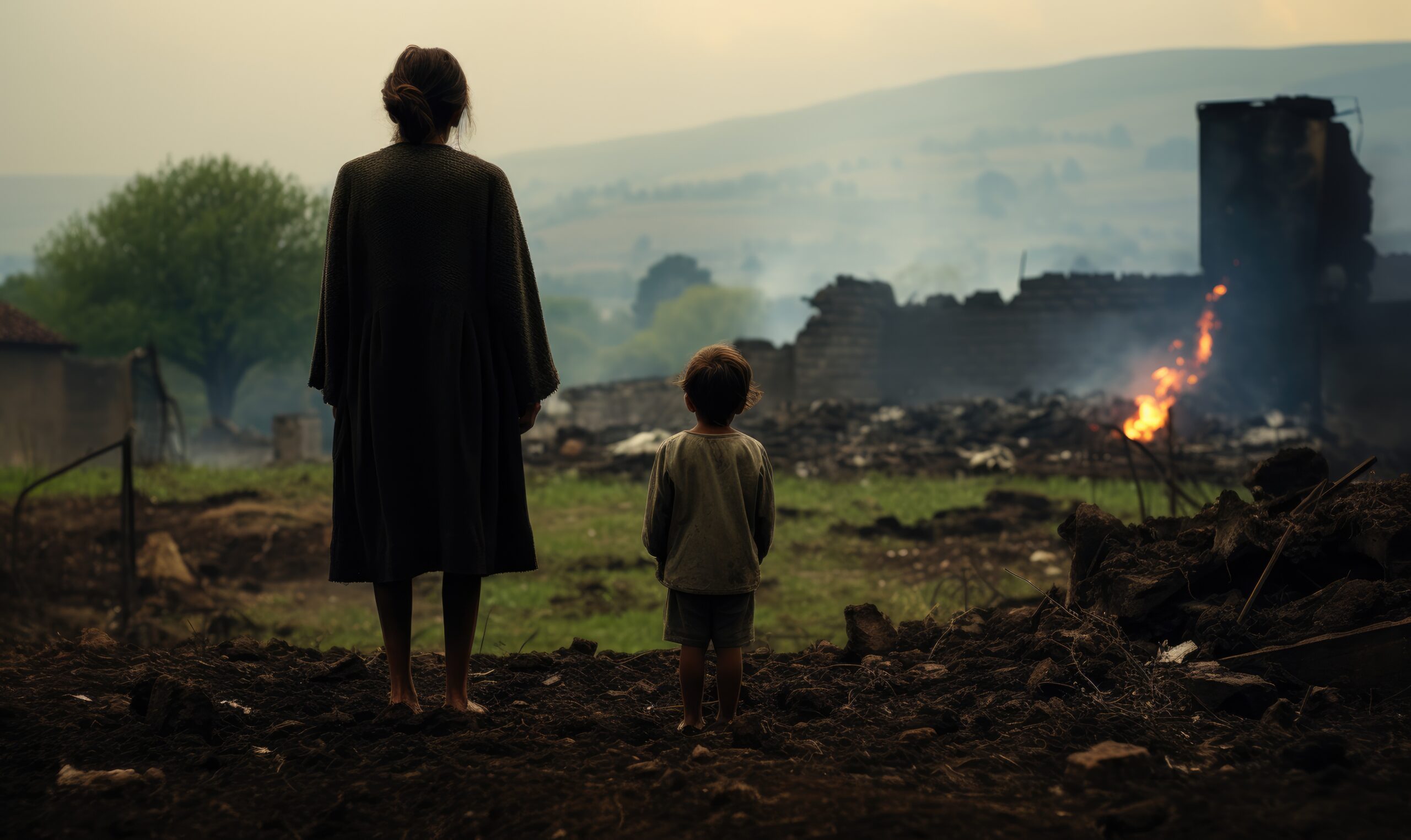
Amidst the ongoing global challenges, including Russia’s invasion of Ukraine, another crisis has erupted, this time in Nagorno-Karabakh, leaving 120,000 ethnic Armenians in distress. This crisis is not an isolated incident but has deep-rooted origins in a prolonged conflict and ethnic tensions in the region.
Over the past decade, UAF has actively supported marginalized communities in Armenia. It has provided grants to organizations addressing gender, sexuality, human rights, ableism, and peace. UAF is currently providing inclusive financial and psychological support to over 100,000 displaced people streaming into Armenia seeking shelter and safety.
Learn more.

We are excited to share that CLIMA member Urgent Action Fund for Women’s Human Rights has changed its name: it is now Urgent Action Fund for Feminist Activism!
UAF wanted a more inclusive name that aligns with its values and the current context and scope of its work. The frontline feminist movements they have long funded — and of which it is also a part — are led by visionary women, trans, and non-binary activists who take and face extraordinary risks to imagine and realize a just world. Trans and non-binary activists are essential members of feminist movements and are leading some of the most transformative organizing worldwide.
Learn more on UAF’s new website.
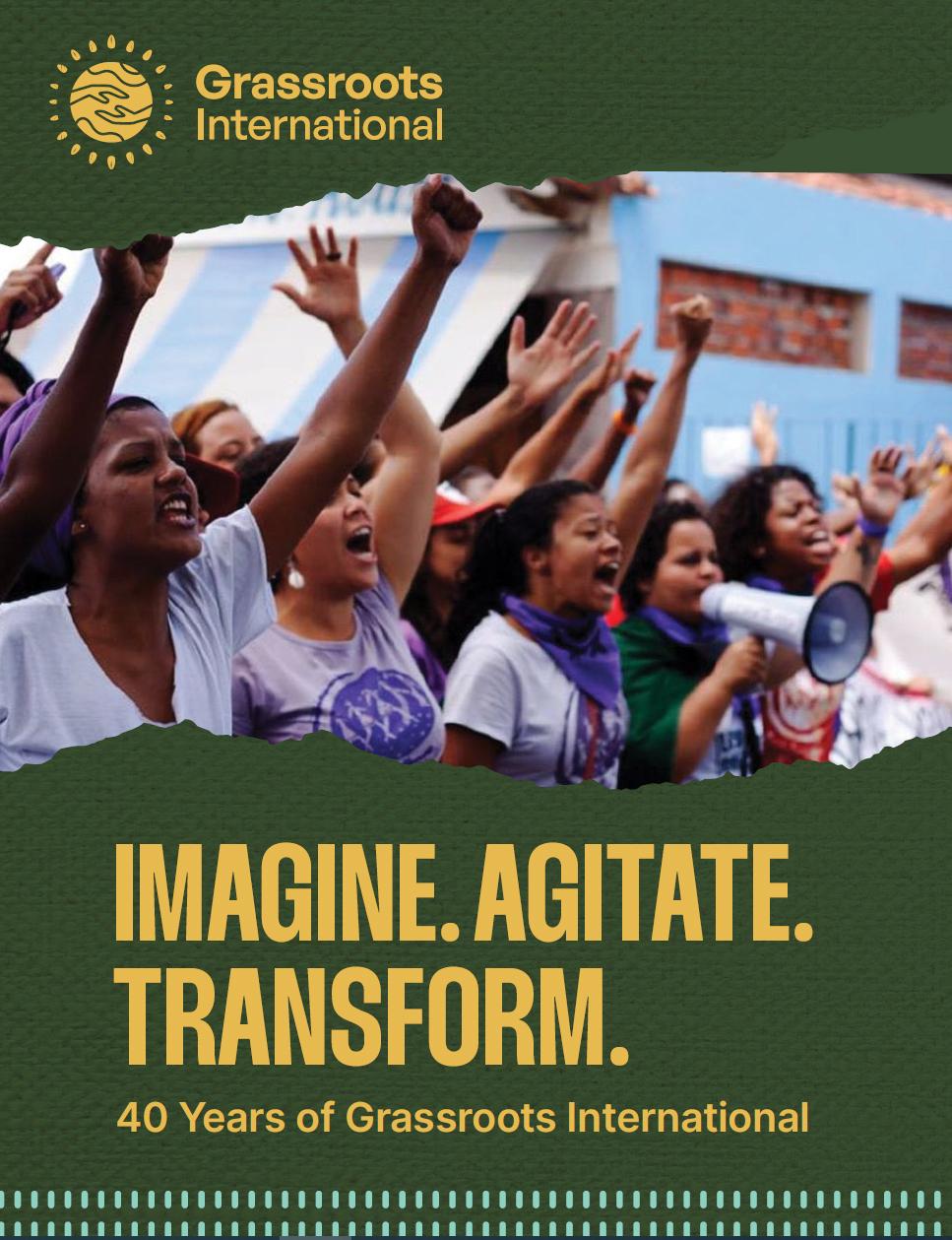
CLIMA member Grassroots International recently celebrated 40 years of accompanying grassroots movements and struggles!
GRI’s report Imagine. Agitate. Transform. shows how social movements have evolved with shifting global conditions, continuously offering powerful new frameworks and strategies from the bottom up; and GRI has evolved together with movements while remaining rooted in the principles on which it was founded.
Learn more on GRI’s new website.
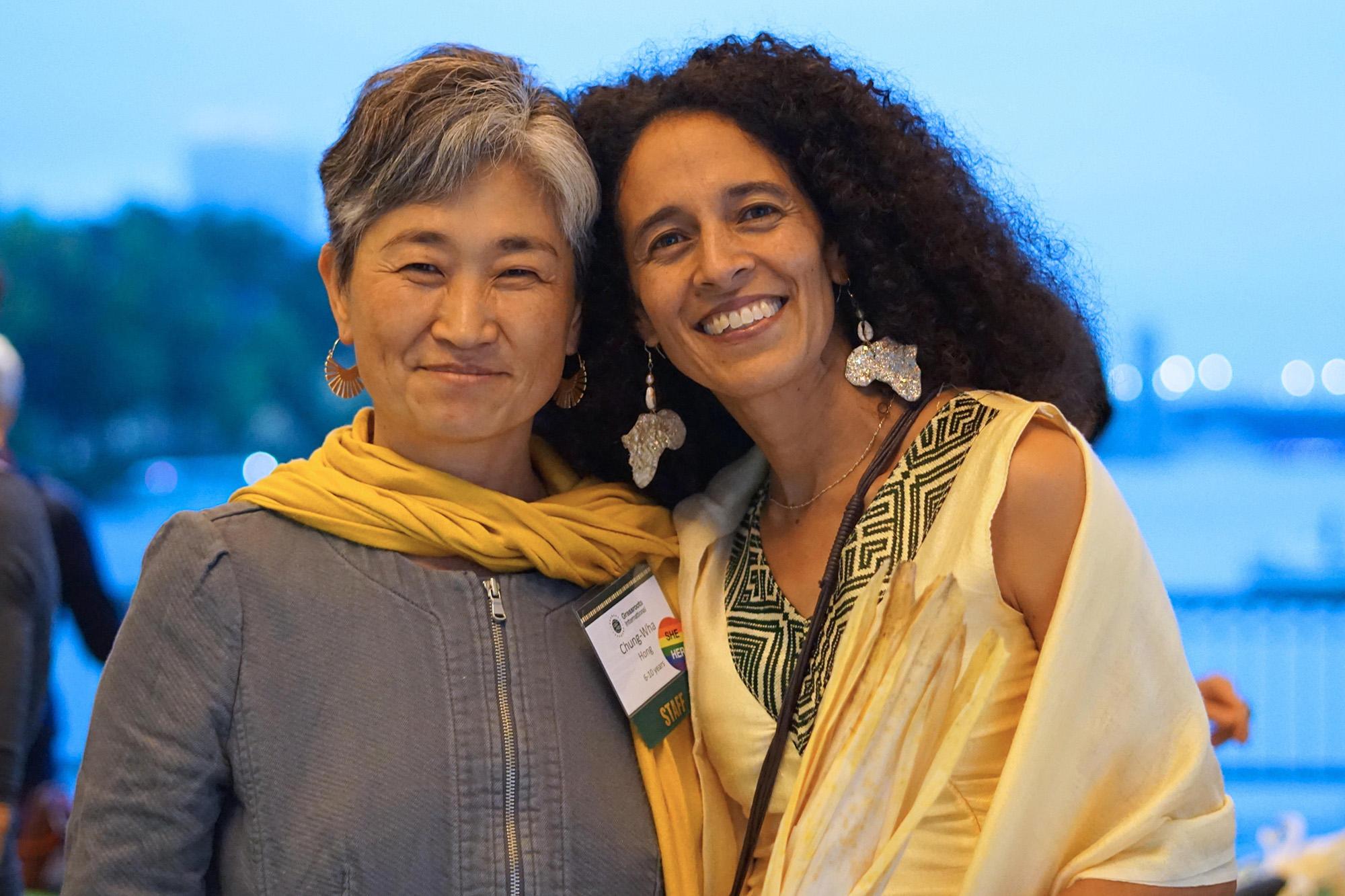
Grassroots International celebrated its 40th birthday – 40 years of keeping it radical – with an exciting announcement! GRI has a new Co-Executive Director structure, as former Director of Grantmaking and Advocacy Sara Mersha joins current Executive Director Chung-Wha Hong in leading the organization.
This move is part of a broader restructuring embraced by the Grassroots International board and staff to make the organization stronger, more collaborative, and more sustainable in the face of significant growth in recent years. Learn more.
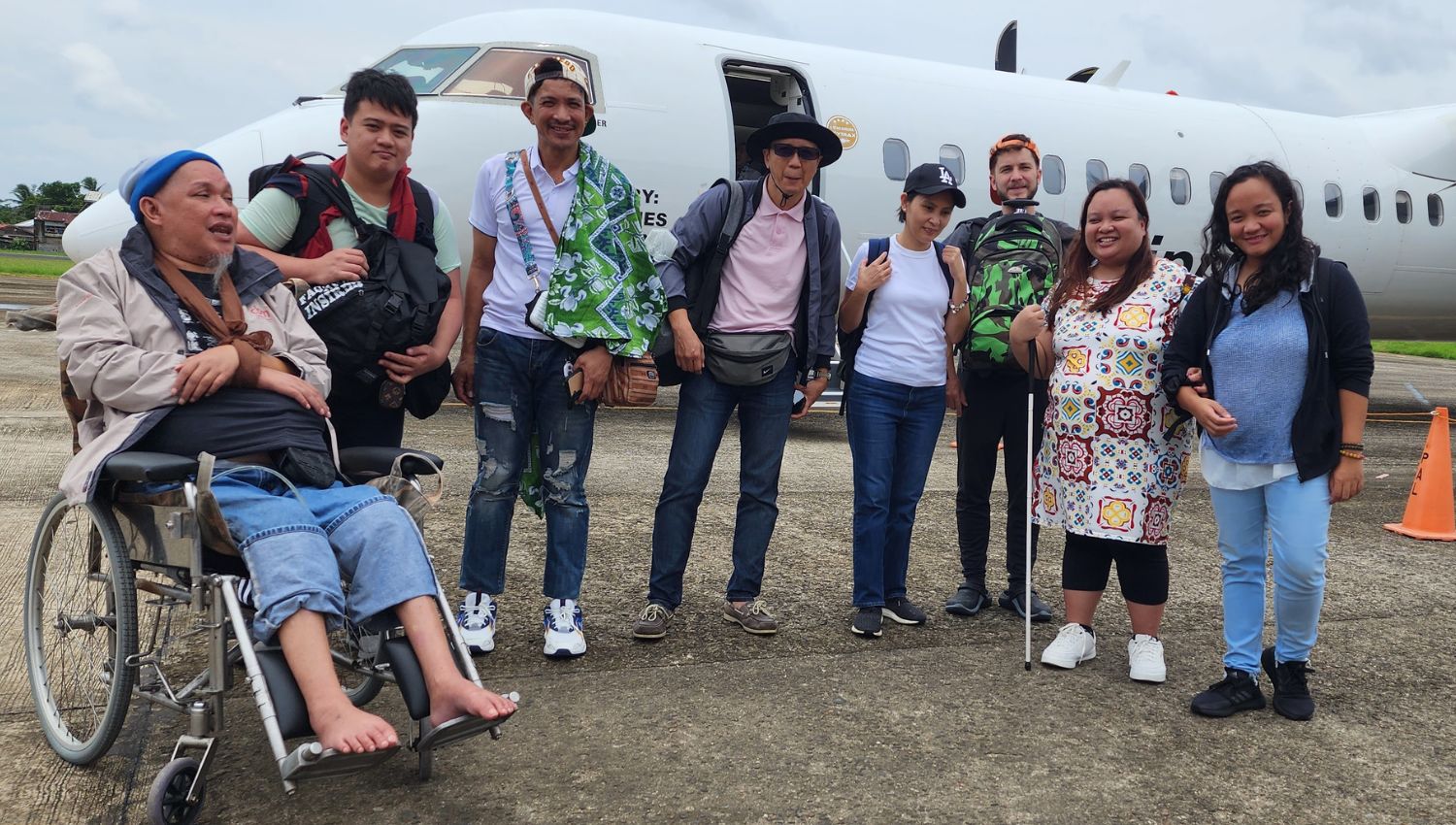
CLIMA member Global Greengrants Fund celebrated the first anniversary of the Disability Rights and Climate Justice (DRCJ) Advisory Board, an initiative that stands at the crossroads of two pressing global issues—disability rights and climate justice, in July 2023.
The Board has emerged as a platform for change and a testament to the power of collaboration and advocacy within and across movements.
Learn more.
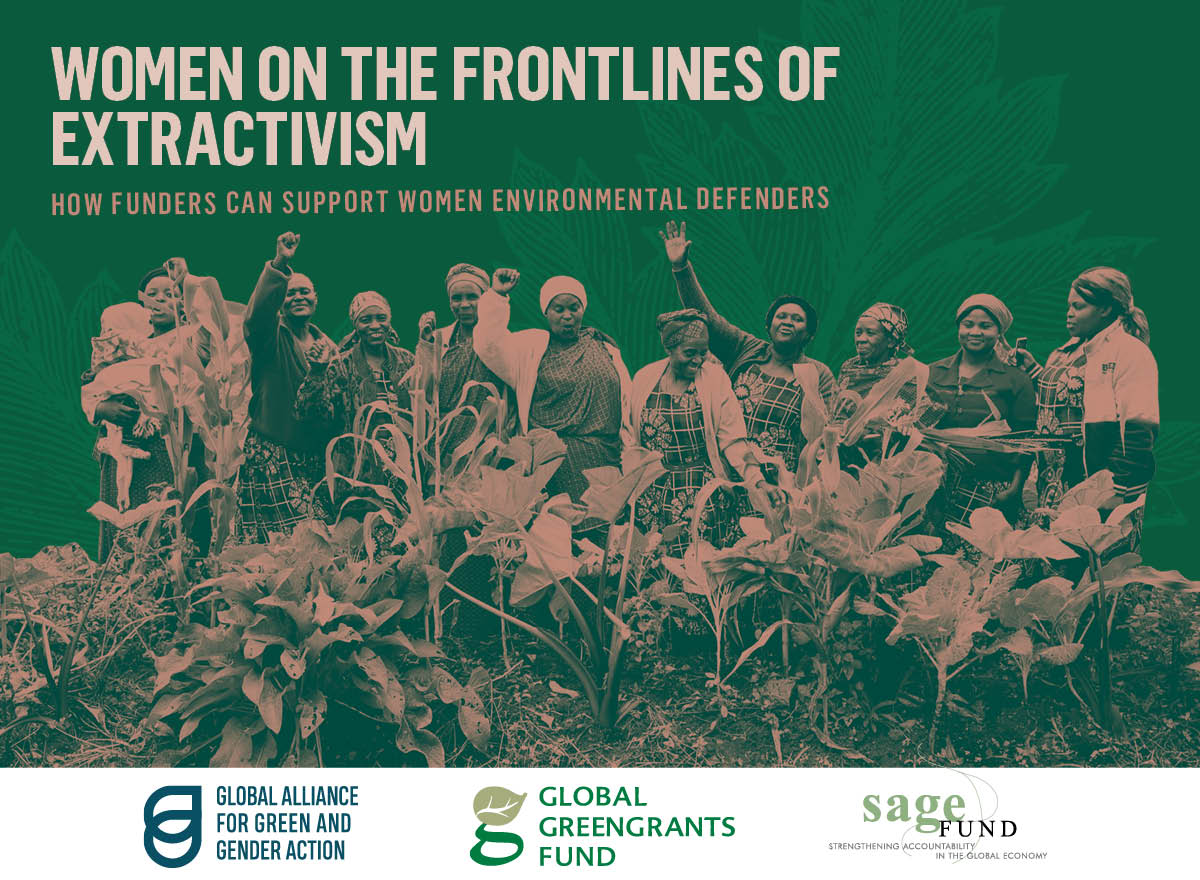
Global Alliance for Green and Gender Action (GAGGA), Global Greengrants Fund, and SAGE Fund launched “Women on the Frontlines of Extractivism: How funders can support women environmental defenders,” a new report that aims to expose how natural resource extraction both fuels and reinforces structural violence, with particular attention to the impacts on women and girls.
Read the report now.
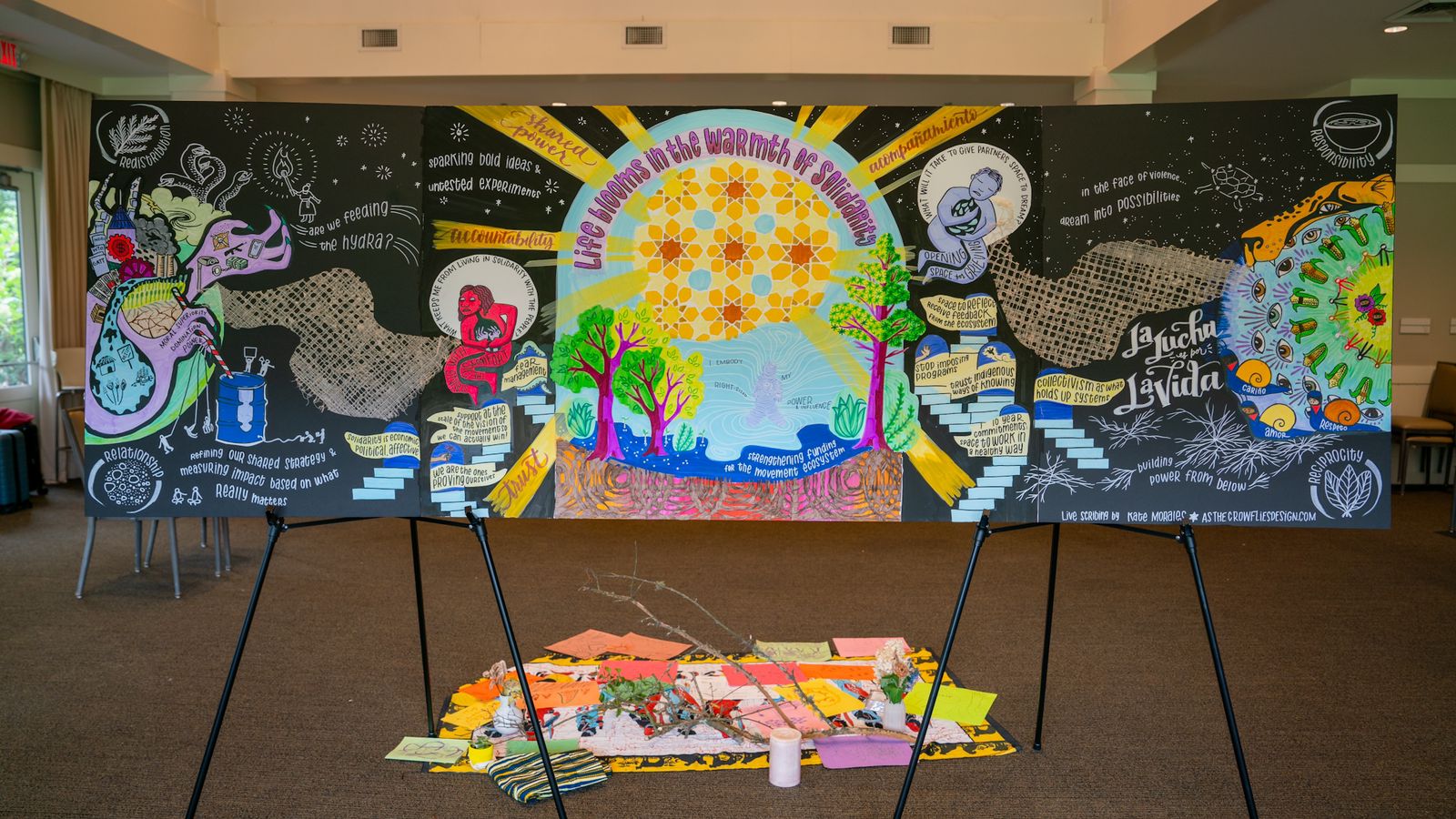
In 2014, CLIMA member Thousand Currents established the Academy as a response to a mandate from its international partners to promote transformative, culturally competent, human-rights-focused, and social-justice-based approaches to philanthropic partnerships with communities in the Global South.
TC’s signature training course for philanthropists is now in its 9th year of service to movements. TC has hosted 12 different cohorts with more than 220 participants from across the world, influencing more than $10 billion in giving.
Read their learnings from the 2023 Academy here.

